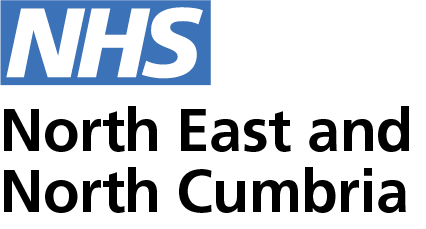NHS urges public stay safe and be prepared ahead of the August bank holiday
People across the North East and North Cumbria are being reminded to be prepared, stay safe and ensure they have enough medicine cabinet supplies over the August bank holiday.
Health teams across the region are asking everyone to plan ahead when it comes to ordering any repeat prescriptions, ensuring their medicine cabinet is well stocked and staying safe, to avoid any unnecessary additional pressure on NHS services.
The ask comes ahead of the summer bank holiday on Monday 26 August, when most GP surgeries and many community pharmacies will be closed.
Dr Neil O’Brien, chief medical officer for the North East and North Cumbria Integrated Care Board (ICB), said: "With the summer bank holiday almost here, we are asking everyone to remember to use services wisely during what is always a busy time for the NHS.
"Our health teams will be here to help those that urgently need treatment and care, in life-threatening situations, however, with high demand over the holidays there are likely to be some delays in services.
"We would like to thank all health and care teams across the region, who will be working over the bank holiday, for their continued hard work. As always their dedication to doing their best to help people is hugely appreciated."
Three key things people can do to help:
- Plan ahead - stock up your medicine cabinet with essentials such as paracetamol, indigestion tablets, plasters, and antiseptic cream, as well as making sure you have enough repeat prescriptions to last over the holiday periods - remember GP surgeries will be closed on Monday 26, and it can take up to 72 hours to process a repeat prescription.
- If you do need medical care and it's not life threatening, contact NHS 111 online or your nearest pharmacy. Both services will refer you for further treatment should you need it.
- Enjoy the bank holiday safely – take care when out gardening, tackling DIY or taking part in an outdoor activity, and try and reduce your alcohol intake.
Ewan Maule, clinical director of medicines and pharmacy, NHS North East and North Cumbria ICB, added: “Don't worry if you do forget to order your repeat prescriptions and need emergency medication over the bank holiday – help is available. An emergency prescription of a medicine can be accessed through NHS111 online at https://111.nhs.uk/emergency-prescription
"Some local community pharmacies will be open over the holiday and they can help you if your medication is in stock.
"The ICBs bank holiday pharmacy opening times webpage will show which pharmacies are available and local NHS websites and social media channels will also have details of opening hours over the holidays."
Top tips for healthcare over the bank holidays:
Repeat prescriptions
- Order online in plenty of time via your GP Practice website or call them – you need to be registered with your practice for this.
- Order through the NHS App – download the app from Google Play or the App store, you can register without having to visit your practice. More information on the NHS App is available on the uk website.
- Order in person, at your GP practice.
Be prepared
- Be prepared for common health problems by keeping a well-stocked medicine cabinet at home.
- Community pharmacists are part of your expert NHS health care team and are excellent at giving lots of advice about self-care and medications to treat common health conditions at home.
- You can access treatment for some common conditions, including infected insect bites, through community pharmacy.
- Health advice and information is also available via the NHS App or the NHS website, or from your local GP practice website which link to a range of online services.
- For children’s health advice you can download The Little Orange Book
which covers a wide range of illnesses in children from common minor ailments including teething, constipation, and colds, through to more serious conditions.
Minor illness or injury
If you do suffer a minor injury or illness, NHS111 online is a great place to seek advice and can help you reach the right place for your care.
Mental health crisis support
If you, or someone you know, are in a mental health crisis, you can call NHS 111 and select the option for urgent mental health support. This service is available for all ages 24/7.
If you are deaf or have hearing loss, please use NHS 111 – SignVideo or use the 18001 111 Relay UK app.
Emergency care
If you or someone else has a life-threatening emergency and require emergency care, you should call 999, or go to your nearest Emergency Department. This includes
signs of a heart attack
chest pain, pressure, heaviness, tightness or squeezing across the chest
signs of a stroke
face dropping on one side, cannot hold both arms up, difficulty speaking
sudden confusion (delirium)
cannot be sure of own name or age
suicide attempt
by taking something or self-harming
severe difficulty breathing
not being able to get words out, choking or gasping
choking
on liquids or solids right now
heavy bleeding
spraying, pouring or enough to make a puddle
severe injuries
after a serious accident or assault
seizure (fit)
shaking or jerking because of a fit, or unconscious (cannot be woken up)
sudden, rapid swelling
of the lips, mouth, throat or tongue
British Sign Language (BSL) speakers can make a BSL video call to 999.
Deaf people can use 18000 to contact 999 using text relay.
Alcohol
If you are concerned about how much you, or someone you know, drinks, there’s lots of help available, including talking to your GP.
You can find your local alcohol support service or contact:
Drinkline freephone: 0300 123 1110
Alcoholics Anonymous: 0845 769 7555

